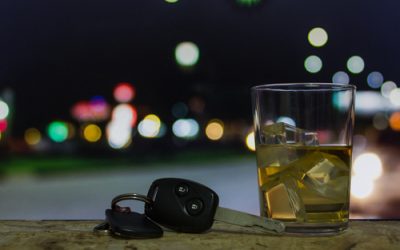
You may want to know if you can lose your license immediately after a DUI. The short answer is: It’s not likely for you to lose your driving privileges right away -although there may be exceptions. However, the legal repercussions of driving under the influence can feel overwhelming, and a major concern is often the impact on your driver’s license.
Will you lose your driving privileges immediately? What are the chances of getting your license suspended? These are just a few of the questions that may race through your mind after a DUI arrest. In this guide, our Los Angeles DUI lawyers answer the most frequently asked questions regarding license suspension to help you navigate this challenging time.
Losing Your License at the Time of Your Arrest
Police officers in California can take your license when they arrest you under suspicion of DUI. However, they aren’t taking away your driving privileges at this stage. Instead, you will be issued a temporary license that expires within 30 days.
If the officer does not take your license at the time of the arrest, you may still be issued a temporary permit to drive by the DMV. However, instead of receiving the temporary permit from the officer, the DMV will mail one to you. It will have a 30-day expiration date, though it will be from the date the DMV handles the request rather than the date of your arrest.
The Administrative Suspension Process Explained
When the officer takes your license and issues your temporary one, it notifies the DMV of your pending DUI charge. This triggers the automatic administrative process, known as the “admin per se” process, which will result in your license being suspended. The length of the suspension will vary based on your record but can be as much as four months for a first-time offender.
The suspension process has two critical deadlines:
- 30 days from the date of your arrest. When the DMV will suspend your license
- 10 days from the date of your arrest. The last day to request a hearing to contest the administrative suspension
Even if you’re unsure how you intend to handle the criminal aspect of your DUI, acting quickly is an essential step if you want to minimize the potential impact of the arrest.
Your only chance of avoiding this suspension is to request a hearing with DMV representatives within 10 days of your arrest. You can use the time between the request and the hearing to speak with a DUI lawyer about the unique facts of your case.
How the DMV Hearing Works
The DMV will hold an administrative officer’s hearing rather than a judge or other judicial branch employee. While it is a formal procedure, it is not strictly legal. The DMV will determine whether there is sufficient reason for the administrative suspension and handle evidence the same way a trial would.
However, a DMV hearing can be a vital part of building your DUI defense. In addition to allowing you to keep your license before the official judicial proceedings, the hearing is an opportunity for you to examine the case against you. You can also have an attorney represent you for the hearing, which can be a substantial factor in your favor.
License Suspension Upon a DUI Conviction
In addition to the administrative suspension and DMV issues, a DUI conviction can also result in the loss of your license.
Two factors will determine the length of time you lose your license:
- Your history of DUI convictions
- Other aggravating factors
For first-time offenders 21 and over, you will have your license suspended for four months if you submit to a urine or chemical test. Repeat offenses will come with longer suspensions and can result in a revocation of your driving privileges altogether.
You can also have your license suspended separately from the DUI offense. Refusing a blood, urine, or chemical test after your arrest, for example, can result in a more severe license suspension. You can still have your license suspended for refusing a chemical test, even if you don’t get convicted of the DUI offense.
Timing Is Key to Avoid License Suspension
You have 10 days from your arrest to request a hearing. You must get strong legal representation within that time. License suspension is mandatory in California, and the only way out of it is through this hearing. You don’t want to waste any time building a strong case against suspension.
The sooner you seek professional legal help, the more time your Los Angeles DUI attorney can spend on your case. They will also have access to fresh evidence that can strengthen your case.
Don’t Lose Your License Without a Fight
Getting arrested for a DUI doesn’t mean you have to lose your license immediately. There are many alternatives you have to consider, especially if you’re a first-time offender. Even though the law isn’t on your side, that doesn’t mean that you should give up on your case.
How Can I Fight Back to Keep My License?
The best way to fight back to keep your license is to get your DUI charges dropped or significantly reduced quickly. A lawyer can help you do this by examining your arrest record and other critical pieces of evidence pertinent to your case.
After careful examination, you can fight for your license by showing various flaws in the prosecution’s argument, such as:
- Improper field sobriety tests or faulty testing equipment
- No probable cause for a police officer to have pulled you over
- Lack of any evidence you were operating the vehicle
In these situations, once the court decides your innocence, the DMV will reinstate your license back to you.
Alternatives to License Suspension
There are alternative measures that you can take in place of a license suspension. One way is to get a restricted license that allows you to travel to and from work. To get this, you need to have spent at least 30 days of your four-month suspension first and enroll in a DUI program.
Additionally, you can also obtain a restricted license with an ignition interlock device (IID). An IID prevents you from starting your car if you’re intoxicated. As long as you prove to the DMV the device is installed and you have enrolled in a DUI program, you can drive your car as you please.
Both of these alternatives require a $125 fee. These restricted license options are only available for first-time offenders. Repeat offenders will most likely be denied a restricted license if they apply.
Statistics on DUI Arrests in Los Angeles
The California DMV’s report on DUI arrests in Los Angeles County (LAC) provides insight into a significant trend observed over three years. In 2018, there were 24,642 DUI arrests, followed by 23,529 in 2019 and a further decline to 17,780 in 2020.
This pattern of decreasing DUI arrests suggests the involvement of various factors, one of which may involve potential adjustments in law enforcement strategies to combat impaired driving. Additionally, the downward trajectory in DUI arrests could also be indicative of broader societal shifts and evolving attitudes toward drunk driving.
Do You Lose Your License Immediately After a DUI? -FAQs You Should Know
Can I Drive Right After a DUI Arrest?
In most cases, no. While you won’t necessarily lose your license on the spot, law enforcement may confiscate your physical license following a DUI arrest. However, you’ll typically receive a temporary driving permit allowing you to drive for a limited window while the legalities are sorted out.
What Happens to My License After the Arrest?
You’ll receive an official notice detailing the administrative license suspension (ALS) and the suspension period. That period can vary depending on your state and whether it’s a first offense. It’s common for this initial suspension to last 30 days or 180 days.
Is There a Way to Get My License Back Early?
Depending on your state’s laws, you might be eligible for a hardship license. That restricted permit allows limited driving privileges for essential needs like work, school, or medical appointments. Obtaining a hardship license usually involves a suspension hearing with a designated hearing officer.
What if I Get Convicted of a DUI?
A separate court-ordered suspension is likely if you’re found guilty of a DUI offense. The length of this suspension depends on the severity of the offense and your criminal history. Some states have a mandatory one-year suspension for a first-time DUI offense.
Can I Fight the DUI Charges?
Absolutely. An experienced DUI defense lawyer can analyze your case, identify potential defenses, and represent you in court to minimize the penalties, including potential license suspension.
Does Refusing a Breathalyzer Test Affect My License?
In most states, yes. Refusing a breath test often leads to automatic license suspension for a specific period.
What Happens if I Get Another DUI?
Subsequent DUI offenses typically result in significantly longer suspension periods or even license revocation.
Will I Need to Go to Alcohol Treatment?
Many states require alcohol treatment programs as a mandatory condition for getting your license reinstated after a DUI conviction.
What About Drugs?
DUI laws apply not only to alcohol but also to driving under the influence of drugs or a combination of alcohol and drugs. The penalties, including license suspension, are generally similar to those for alcohol-related DUIs.
Talk to an Experienced Car Accident Lawyer Today
Facing a DUI charge can be a stressful ordeal. An experienced attorney can guide you through the legal process, fight for your rights, and protect your driving privileges. Contact a reputable DUI defense lawyer in your area today for a consultation. They can answer your specific questions and help you understand your options as you navigate this challenging situation.
Los Angeles DUI Lawyers are ready to help you after being detained for DUI. We can examine the evidence, develop a defense strategy, and help you understand your rights. Contact our office today to schedule a free consultation with an experienced Los Angeles DUI Lawyer to determine whether you may lose your license after a DUI car accident.






